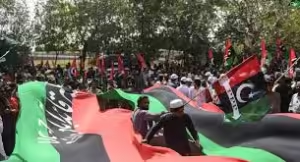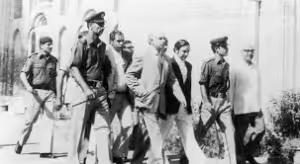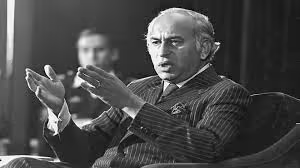Zulfikar Ali Bhutto remains one of Pakistan’s most iconic and controversial figures. Known for his charisma and visionary leadership, Bhutto’s tenure was marked by both immense popularity and political errors that led to his downfall. Born into a wealthy feudal family, Bhutto’s education at Berkeley and Oxford influenced his progressive ideas. His early political career gained prominence when he became Foreign Minister under Ayub Khan, but differences with him led to Bhutto’s departure and the founding of the Pakistan People’s Party (PPP) in 1967.
With his slogan “Roti, Kapra, aur Makan” (Food, Clothing, and Shelter), Bhutto

connectedwith the common people and rose to prominence. However, his political miscalculations, particularly during the 1970 elections and the tragic disintegration of East Pakistan, overshadowed his leadership. Despite his socialist reforms, his attempts to nationalize industries led to economic inefficiency.
Bhutto’s leadership turned increasingly authoritarian, cracking down on political opponents and suppressing dissent. This culminated in a coup by General Zia-ul-Haq in 1977, after which Bhutto was arrested, tried, and executed. His death transformed him into a political martyr, and his legacy remains dee ply polarizing—his supporters view him as a champion for the poor, while critics blame him for instability.
ply polarizing—his supporters view him as a champion for the poor, while critics blame him for instability.
Despite his flaws, Bhutto’s influence on Pakistan’s political landscape is undeniable. His daughter, Benazir Bhutto, carried his legacy forward as the first female Prime Minister of Pakistan. Zulfikar Ali Bhutto ‘s life, filled withgreat achievements and grave mistakes, remains a profound chapter in Pakistan’s history.
For more visit Pakitan Updates




